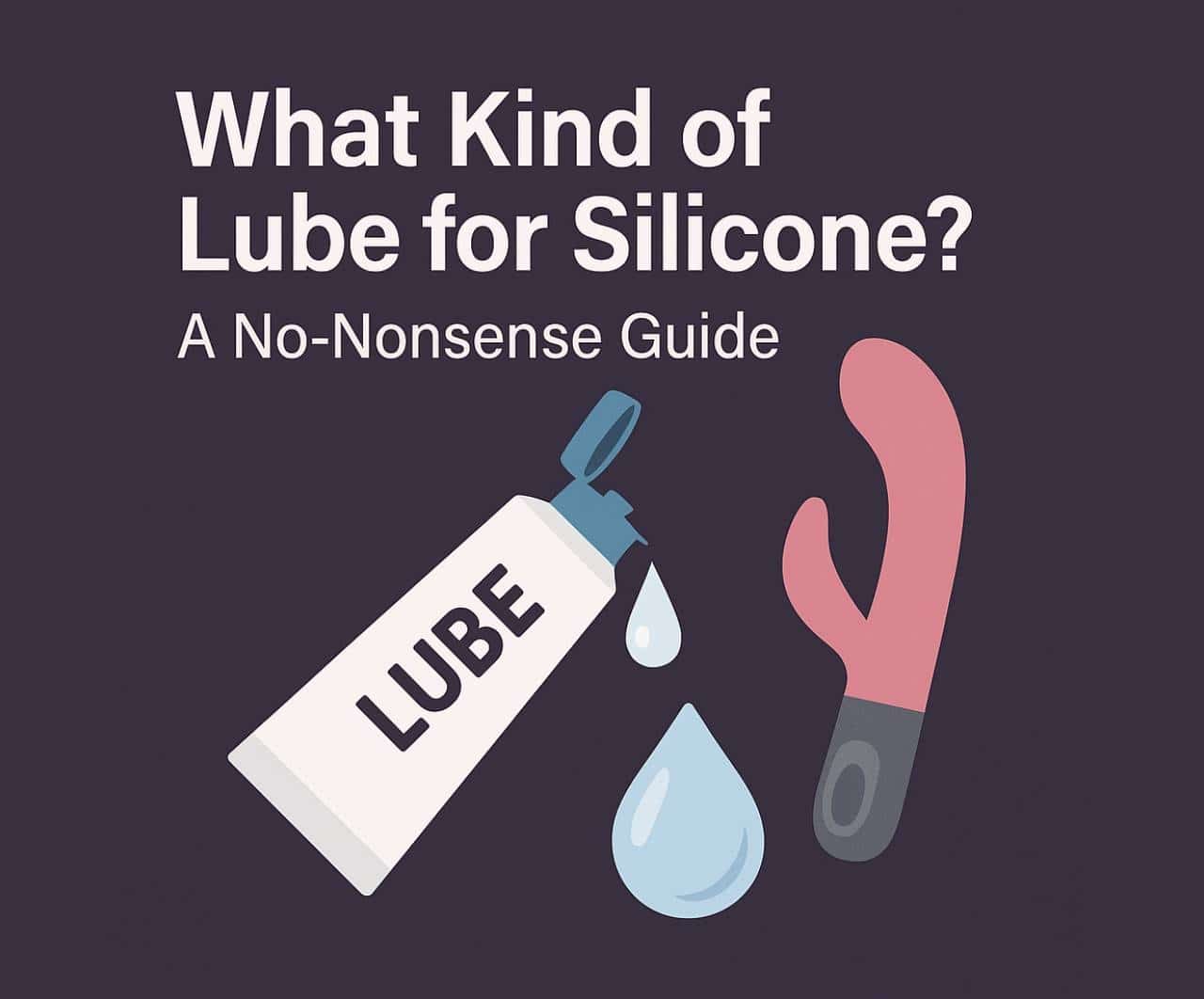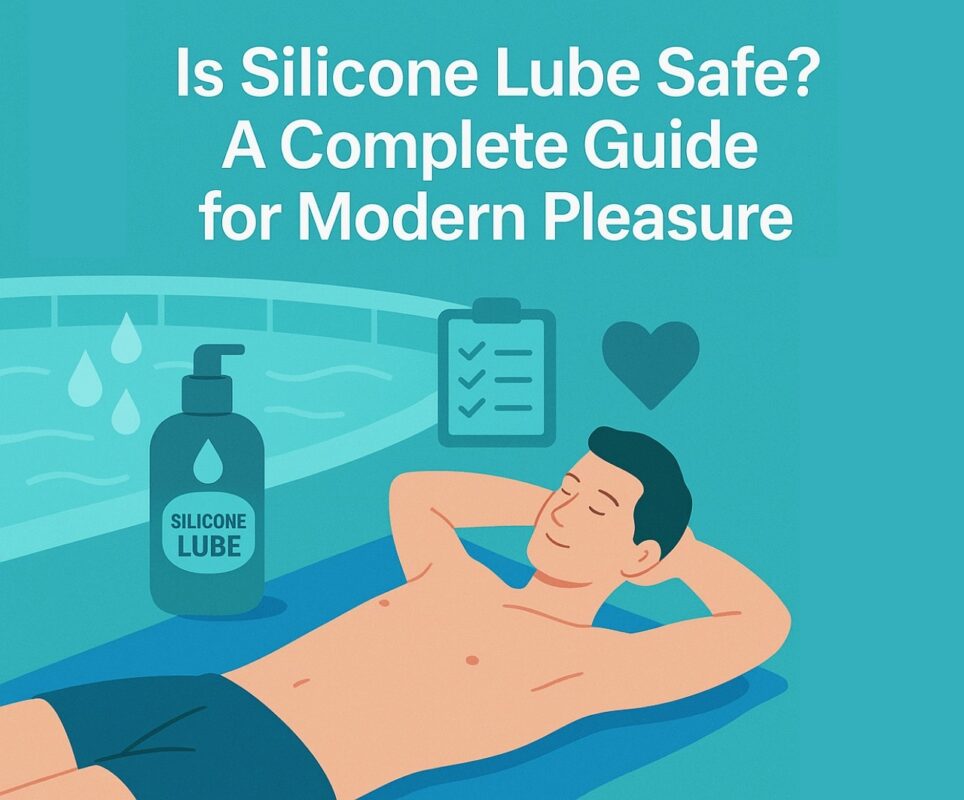If you’ve spent any time shopping for adult products or personal lubricants, you’ve probably come across the sleek, long-lasting world of silicone based anal lube, premium glide options for penetrative play, and specialty formulas like silicone lube fleshlight varieties. But one question still trips up even seasoned pleasure product users: what kind of lube for silicone toys is actually safe? Especially when it comes to choosing the right silicone lube for anal or pairing your favorite lube with a realistic stroker, knowing the rules around compatibility and safety is key.
This guide answers those questions in detail — breaking down the science behind lube types, busting popular myths, and offering practical advice to help you get the most out of your toys and your lube. Click to view more…
Why Lube Type and Toy Material Compatibility Matters
Lubricants aren’t one-size-fits-all, and choosing the right one can make a significant difference in your experience. The type of lubricant you use doesn’t just affect how everything feels in the moment — it can also influence how long the lube lasts during use, how easy cleanup is afterward, and most importantly, how well your sex toys hold up over time. The base formula of a lube — whether it’s water-based, silicone-based, or oil-based — interacts differently with various materials, especially when it comes to silicone toys.
For instance, pairing a silicone-based anal lubricant with a silicone butt plug or vibrator might seem harmless, but it can actually degrade the toy’s surface, leaving it sticky or tacky. This kind of material breakdown isn’t just unpleasant — it can create microscopic tears or a porous surface that traps bacteria, increasing the risk of infections or irritation.
That’s why it’s absolutely essential to understand lube compatibility before using any product, particularly with body-safe silicone toys, which are among the most popular for their soft texture, durability, and non-porous nature. Knowing what works — and what doesn’t — can help extend the life of your toys, keep your play sessions safe and satisfying, and protect your body in the long run. Whether you’re exploring solo or with a partner, choosing the right lube for your specific toys isn’t just a nice-to-have — it’s a must for anyone serious about pleasure, safety, and good hygiene.
Can You Use Silicone-Based Lubes With Silicone Toys?
The short answer: generally, no — you shouldn’t use silicone-based lubricants with silicone toys. While it might seem convenient to pair similar materials together, the science behind it tells a different story. Silicone lubes and silicone toys are both made from chemically similar polymers. When they come into contact, the lubricant can begin to bond with the surface of the toy.
This interaction can break down the toy’s smooth finish over time, leading to a range of issues like surface pitting, a tacky or sticky texture, or even a weakened structural integrity. Not only does this damage the toy, but it can also create a breeding ground for bacteria, especially if the surface becomes porous or hard to clean.
That said, there are some exceptions to this general rule. A handful of high-end, medical-grade silicone toys — often from premium brands — are designed and rigorously tested for compatibility with specific types of silicone-based lubricants, including those formulated for anal play. These boutique lubes may be crafted with a more stable formula that doesn’t interact as aggressively with the toy’s material.
However, unless the toy manufacturer clearly states that their product is safe to use with silicone lubricants, it’s best to err on the side of caution. Sticking with a high-quality water-based lube is usually the safest bet when it comes to preserving the longevity and safety of your silicone toys.
What Happens If You Use Silicone Lube on a Silicone Toy?
If you accidentally use silicone lube for anal or a silicone lube fleshlight formula on your silicone toy:
- The toy’s surface may feel sticky or gummy
- The finish might degrade over time
- The material could become porous, leading to hygiene issues
- It’ll be harder to clean, trapping bacteria or odor
That’s why toy-safe labeling and lube compatibility checks matter.
What Kind of Lube for Silicone Toys?
The gold standard for silicone toys is water-based lube. It’s safe, versatile, and won’t degrade your toy’s surface. Water-based lubes come in a wide range of textures and viscosities, from thin, slippery options to thicker anal-safe versions for high-intensity play.
Why It’s Recommended:
- Universally compatible with all toy materials
- Condom safe
- Easy to clean
- Widely available in organic, vegan, and flavored varieties
If you want a long-lasting feel similar to silicone based anal lube without the risks, try a high-viscosity water-based anal lube.
What About Hybrid Lubes?
Hybrid lubricants are a unique blend of water-based and silicone-based ingredients, designed to offer the best of both worlds — the easy cleanup of water-based lube with the long-lasting slickness of silicone. These lubes can be a great option for those looking for a bit more glide without fully committing to a silicone formula. However, when it comes to using hybrid lubes with silicone toys, things get a bit more nuanced.
Whether a hybrid lube is toy-safe depends on factors like the concentration and molecular size of the silicone components in the formula. Some hybrids use smaller amounts of high-grade silicone that are less likely to bond with your toy’s surface, making them safer to use.
If a hybrid lubricant is specifically labeled as “compatible with silicone toys,” it generally means the formulation has been tested and approved for safe use. In these cases, you can enjoy the benefits of a hybrid lube without worrying about damaging your toy. That said, manufacturers vary, and not all hybrids are created equal — so it’s important to read the label carefully and verify compatibility.
As a general rule of thumb, it’s always smart to do a patch test before full use. Apply a small amount of the lubricant to an inconspicuous area of your toy, let it sit for a few hours, and check for any changes in texture, stickiness, or surface quality. This simple step can help you avoid unwanted damage and ensure your toy stays in great condition for the long haul.
Can You Use Silicone Lube Fleshlight Formulas on Fleshlights?
Yes — but only if it’s labeled Fleshlight-safe.
Most silicone lube fleshlight formulas are water-based and designed specifically for use with sleeves made of SuperSkin (a soft TPE-like material). True silicone based anal lube should not be used on Fleshlights unless explicitly tested and approved by the manufacturer.
Why?
Silicone lubes can bond with TPE or soft elastomer surfaces, leading to similar stickiness, surface breakdown, and hygiene risks as with silicone toys.
When Should You Use Silicone Lube for Anal Play?
One area where silicone-based lube for anal play truly excels is when you’re not using silicone toys — or when you’re engaging in body-on-body contact. In these situations, silicone lube offers unmatched performance and comfort. Unlike water-based formulas, silicone lubricants don’t dry out or absorb into the skin as quickly, which means they stay slick for much longer without needing to be reapplied. This makes them ideal for longer sessions, more intense activities, or any scenario where uninterrupted glide is essential.
Silicone-based lubes are especially well-suited for use with non-silicone sex toys, such as those made from glass, stainless steel, hard plastic, or ABS. These materials don’t react with silicone in the same way silicone toys do, so you can safely enjoy the silky-smooth feel without risking damage. They’re also fantastic for skin-to-skin contact, whether it’s manual stimulation, intercourse, or massage — offering long-lasting moisture and reducing friction in a way that feels luxurious and effortless.
In short, silicone lubes are unbeatable for:
- Long-lasting glide without reapplying
- Waterproof play (shower, bath, hot tub)
- Extra cushion during intense anal penetration
- Use with latex condoms (safe and friction-reducing)
Avoid using it on:
- Silicone plugs
- Silicone anal beads
- Silicone prostate massagers
New Trends in Silicone-Based Lubes
The lubricant market has seen a surge in premium silicone based anal lube products offering unique benefits:
- Vitamin E-enriched formulas for skin-nourishing glide
- Hybrid silicone-water blends for improved clean-up
- Toy-safe silicones for premium medical-grade products
- Vegan, cruelty-free lubes for ethical pleasure
Check for eco-friendly packaging and ingredient transparency from top brands.
Shopping for Silicone Lube Near Me
Whether you’re seeking silicone lube fleshlight formulas or premium silicone lube for anal, most adult boutiques and pharmacies carry a wide selection. Search “silicone lube near me” to find a discreet local stockist or order online for more specialized products.
Pro tip: Stick with trusted brands with clear ingredient lists, FDA approval, and dermatological testing. Avoid generic or unbranded products from discount outlets.
Cleaning and Care After Lube Use
Post-play hygiene is vital, especially if using silicone based anal lube. Clean toys immediately:
- Use toy-specific cleaner or mild soap and warm water
- Avoid harsh detergents or alcohol
- Dry completely before storage
Silicone lubes cling to surfaces, so take your time with clean-up.
FAQ: Lube and Silicone Toy Safety
Q: Can I ever use silicone based anal lube with silicone toys?
A: Only if the toy’s manufacturer approves it. Otherwise, use water-based lube.
Q: Is silicone lube safe for condoms?
A: Yes — silicone lube for anal and other body-safe silicone lubes work with latex and non-latex condoms.
Q: What’s the best lube for fleshlights?
A: Water-based lube. Most silicone lube fleshlight products are water-based despite the name.
Final Thoughts
So — what kind of lube for silicone toys? The safest, smartest choice is water-based. While silicone based anal lube and silicone lube for anal products deliver unmatched slickness and long-lasting glide, they’re best reserved for skin-on-skin play, condoms, and non-silicone toys.
Educating yourself about lube compatibility not only protects your toys and your investment but makes every play session safer, smoother, and more satisfying. Click to view more…


